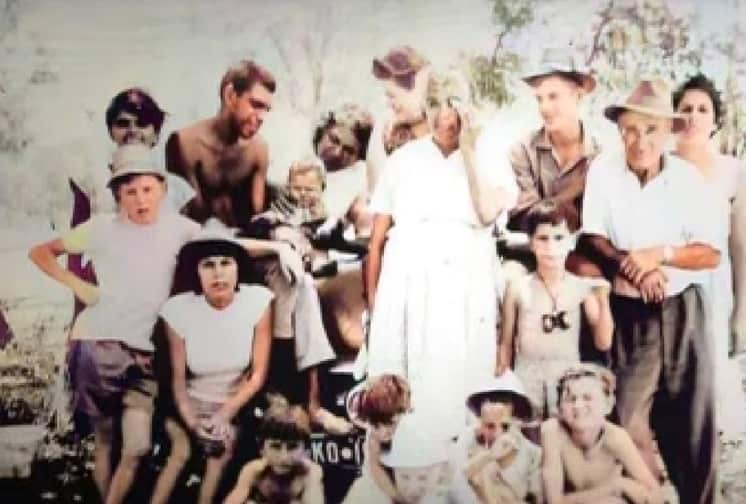My Nanna Dot (Dorothy) began a happy life being taught the importance of Noongar Culture on Carrolup mission, in Kojonup, Western Australia.
But that life was quickly turned upside down on the 17th December 1946.
“Yesterday afternoon I received a call from Kojonup to the effect that they had apprehended the following natives for removal to Carrolup Native Settlement, Violet Smith and her four children,” wrote the acting Commissioner of Native Affairs.
Nan was taken with her mother and two sisters when she was 8 months old and forcibly moved to the Carrolup Native Settlement, which is located between the towns of Katanning and Kojonup, 266km southeast of Perth.
Nan's mum, Violet, was given permission to leave Carrolup mission after two years to take care of her Dad, but she had to leave two of her children behind.
“The remaining children will remain under this Department’s control until they reach leaving school age, when they will be placed in private employment.”
My Nan was separated from her father, her brother, her grandparents, and other close family members such as her aunts, uncles, and cousins. Then when she was allowed to leave, she was separated from her two older sisters as they remained in the mission.

Going back
Nan was abused from a young age and growing up in the mission with trauma that has lived within her for all her life. She moved to Perth and settled with her husband Pop Peter and her children. Although she continues to live a happy life, she still speaks of the trauma she faces. In 2016, visited Carrolup with her sisters for the first time.
She always spoke of being in a red tin shed - this was the only vivid memory she had of Carrolup, but none of her other sisters could remember what this red tin shed was.
When they went to Carrolup 62 years later, Nan was drawn to a small corner behind the Superintendent’s office.
There was the red tin shed Nan remembered.
“That was the mission jail they use to keep us in, for hours on end. No food or water. We were locked in like animals." said her older sister Edie.
There was a moment of realisation of the impact that the red tin shed had on my Nans, and as I experienced that moment - I felt the emotional and cultural depletion.
But despite all the trauma my Nans have been through, they continue to ensure our family continues our strong connections to Noongar Boodja (Country), Kaartdijin (Knowledge), and traditions. Nan Dot is one of the strongest women I know and continues to be a well-respected Elder within the Noongar community.
Every First Nations person will have a story of resilience and reflection that is told within their families. That story is mine.
Staunch and strong
I carry this story with me every day, but January 26th particularly as this resembles a cultural reset for every year, we advocate to ensure that those horrendous, traumatic events never happen again.
Every year this advocacy changes for my family, some years we are marching the streets of Perth CBD, other years we are back on Country celebrating our resilience, strong traditions and connections.
After the 26th, I reflect on the potential that there will be a day where there can be genuine truthful acceptance of Australia’s dark history and present, and all Australians no matter their background will all share a day to celebrate an inclusive Australia.
But for now, the day is emotional and it reminds me of the staunch resilience of my family, and every year I reflect on stories that my Old People have shared with me.
And I think of that small red tin shed.
Brianne Yarran is a Whadjuk, Balladong, Wagyl Kaip woman from the Noongar Nation in southwest Western Australia. She is a core crew member of Boorloo Justice.
NITV presents a selection of dedicated programming, special events and news highlights with a focus on encouraging a deeper understanding of Aboriginal and Torres Strait Islander perspectives on 26 January. Join the conversation #AlwaysWasAlwaysWillBe

